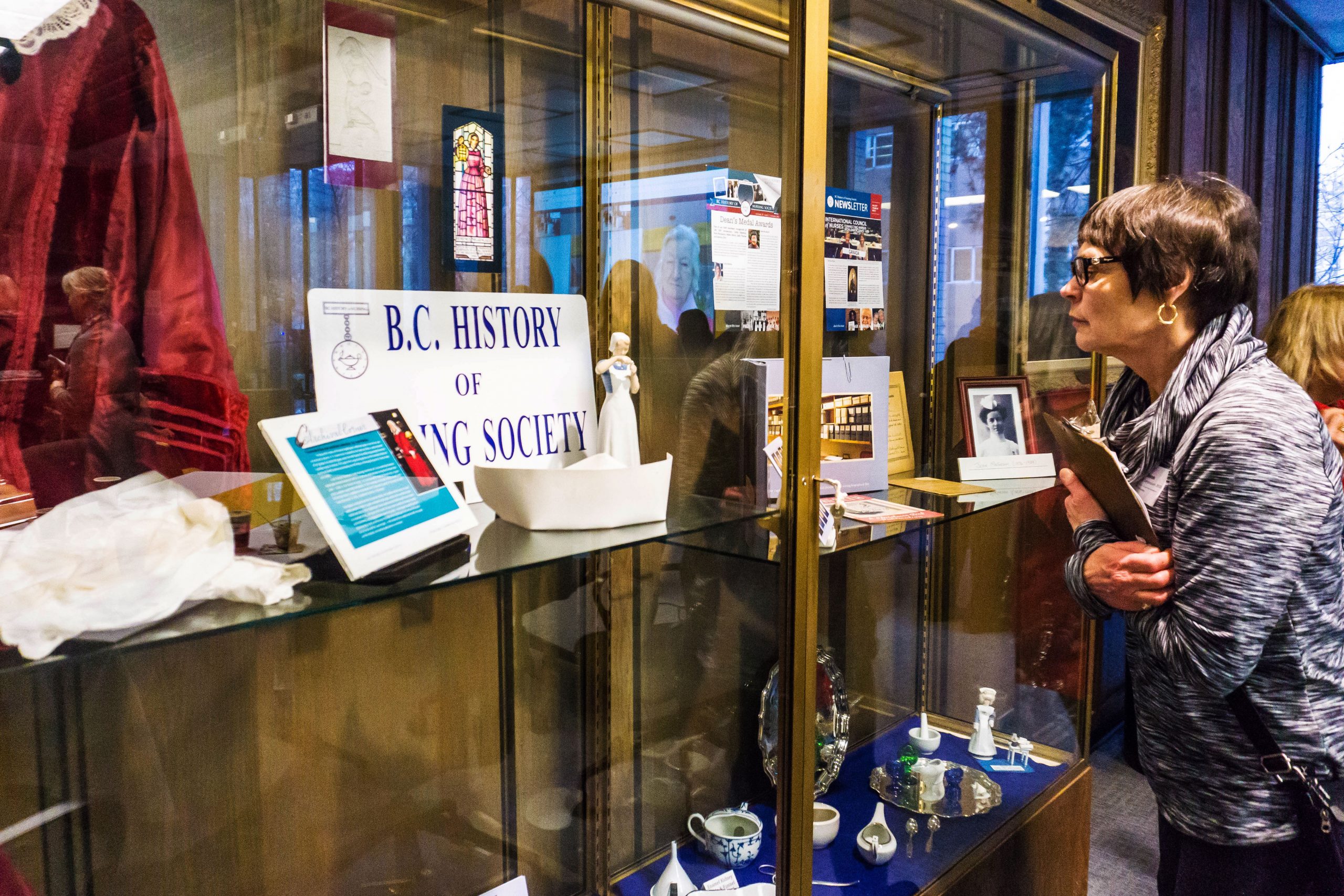In Search of Nursing’s History
5th Annual Nursing History Symposium
The 2018 symposium, In Search of Nursing’s History, was held on March 8th in the Woodward Library’s Sherrington Room with panel presentations on emerging research techniques that are currently available to users of the UBC Library system. Each presentation reflected on the ways in which nursing history has been and is preserved, made accessible, and used in research. Geertje Boschma, who, with Catherine Haney, has consistently been the contact and host for the Nursing History Symposium, opened the event and introduced both Katherine Miller, Nursing Librarian at UBC Woodward Library, and Aleteia Greenwood, Head of the UBC Woodward Library and Biomedical Branch. They provided a brief overview of their roles, a history of the Woodward Library, details on how it fits into the UBC library system, and what to find there. Woodward is home to the largest biomedical collection in Western Canada, evolving from various sources.
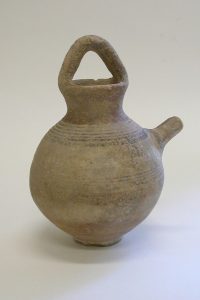
[Unknown]. (300AD). [Infant feeding pot from around 300 B.C.] [P]. doi:http://dx.doi.org/ 10.14288/1.0228078
As if to underscore the importance of digital knowledge translation, one of the panel presenters spoke via webcam from Saskatchewan. Dr Helen Vandenberg gave the users’ perspective, weighing in on the benefits of being able to access a wealth of information from important sources as varied as hospitals, schools, and churches, without the time and expense of travel. Vandenberg also noted that the massive collection of data from multiple locations can be managed easily with today’s search engines, making it simple to focus on only the documents that are most relevant to one’s research.
After the question period, participants engaged with the displays, including archival treasures from the BC Nursing History Society, a brief timeline of the history of the school, a poster on “Collections and Research Services,” and UBC Press table of recent School of Nursing publications.
In the Charles Woodward Memorial room, participants discovered a collection of nursing history artifacts from infant feeders, some of which are ancient, to nursing medals. All of this testifies to the assertion made during the presentations: that a library system preserves so much more than the printed word.
Not everything is available online due to copyright laws, sensitive material, and other constraints; however, the librarians and archivists themselves are a wealth of anecdotal information that you won’t have access to unless you engage with them personally. This, of course, we highly recommend and encourage.
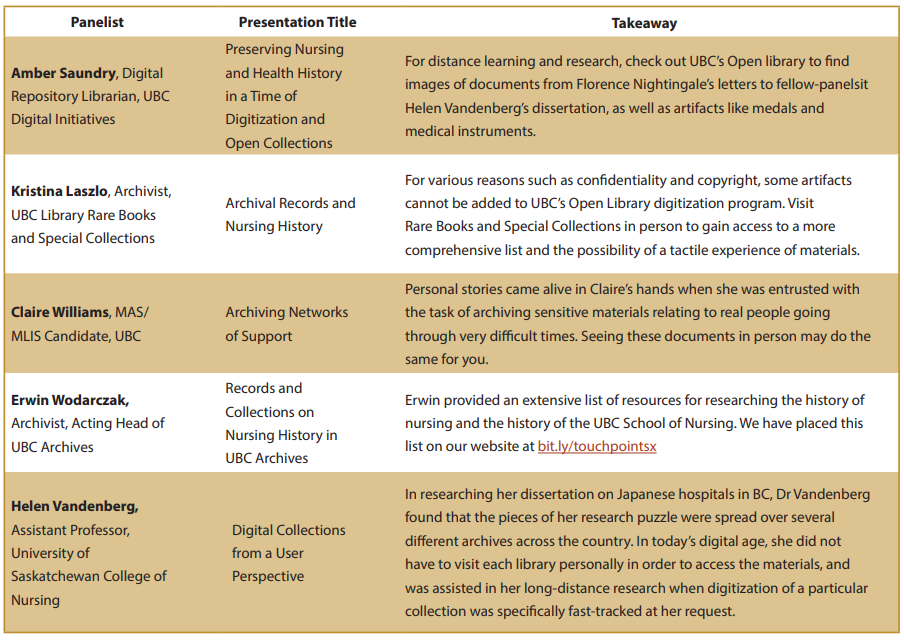
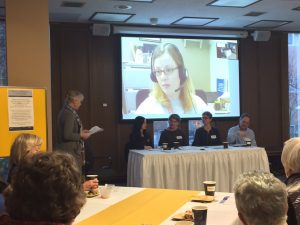
Geertje Boschma introduces panel members Amber Saundry, Kristina Laszlo, Claire Williams, and Erwin Wodarczak at the table, Helen Vandenberg joining virtually from Saskatchewan.
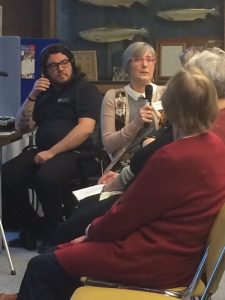
Aleteia Greenwood recounts the (possibly true) story of how UBC came into possession of Florence Nightingale’s original documents.
Visit bit.ly/SoNHistory5 for a video of the symposium.
To view the artifacts, visit UBC Library’s Open Collections or attend in person.
